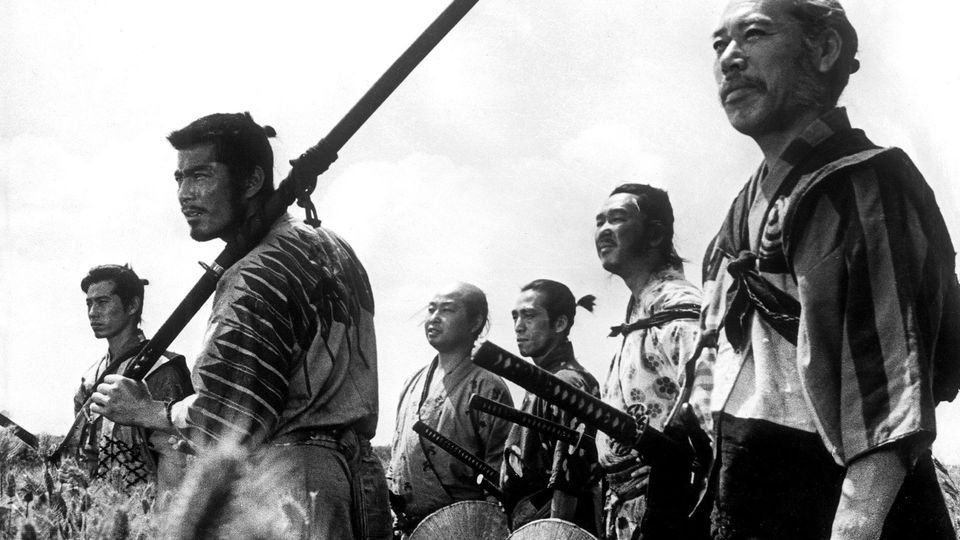
Seven Samurai (Kurosawa, 1954) is truly a foundational film, not just of Japanese cinema, but of world cinema. Because it is has become a touchstone for so many tropes and devices that we recognize today, you might think that it is a stuffy film, or a hard slog because of its length. Neither could be farther from the truth of the matter. Kurosawa excelled at genre films, excelled at high action, intense drama, and creating character moments both large and small. And of course he excelled at writing and casting. His seven samurai are notable archetypes as filtered through the lens of Japanese history, both ancient and post-War. His actors bring every element of the interior lives of the samurai to the screen.
What’s more, even though we will never know most of their names, Kurosawa and his co-writers developed a masterful outline of this poor, demoralized village and its inhabitants. Because we end up spending so much time with both the samurai and the villagers over the course of an agricultural year, we understand what is at stake at every moment. This is a life or death situation for everyone involved, and as Cole puts it, they have to make the choice to die standing or live on their knees.
Kurosawa made, in his estimation, “A movie as rich as a buttered steak topped with grilled eel.” I think we would all tend to agree!
What you’ll find in this episode: why so many American epics were westerns, the different musical styles at work, and why the year-long shoot was so special.
– Ericca
Links and Recommendations:
Check out Seven Samurai on IMDB.
Ericca’s further viewing pick of The Dirty Dozen.
Cole’s further viewing pick of The Sword of Doom.
The history of gunpowder: one of China’s four greatest inventions.
The fashion of Toshiro Mifune.
Podcast: Play in new window | Download | Embed
Subscribe: RSS
